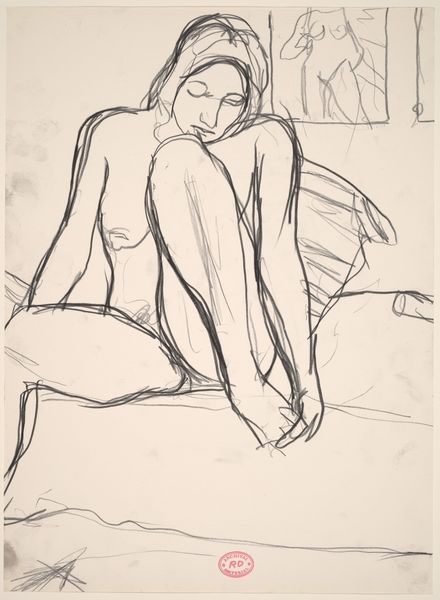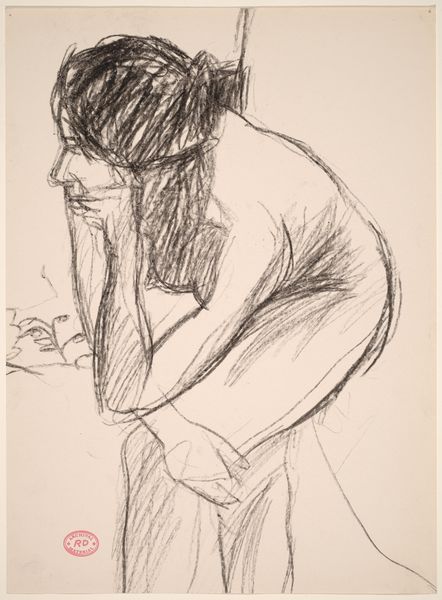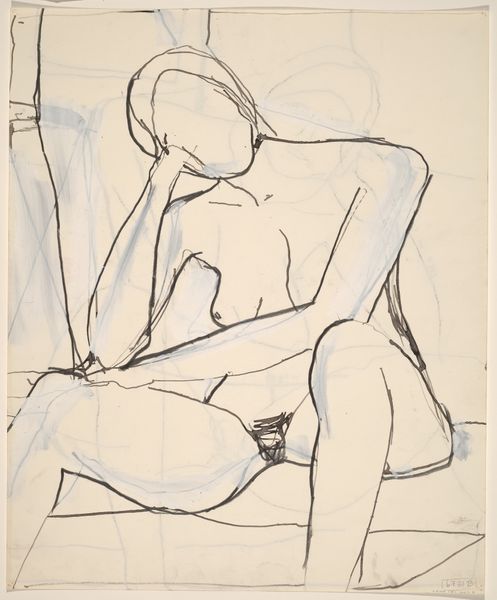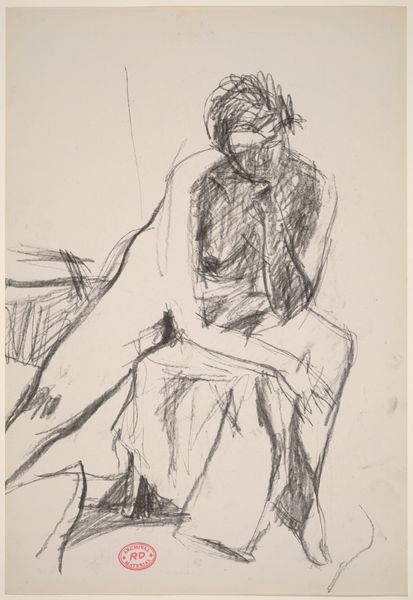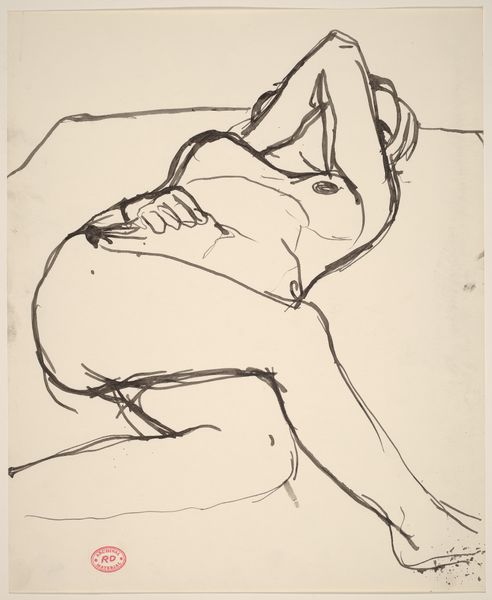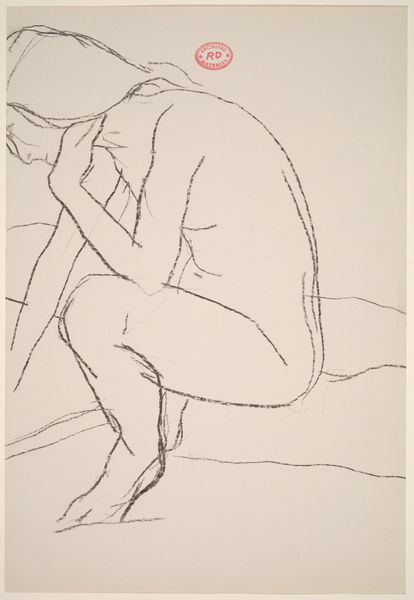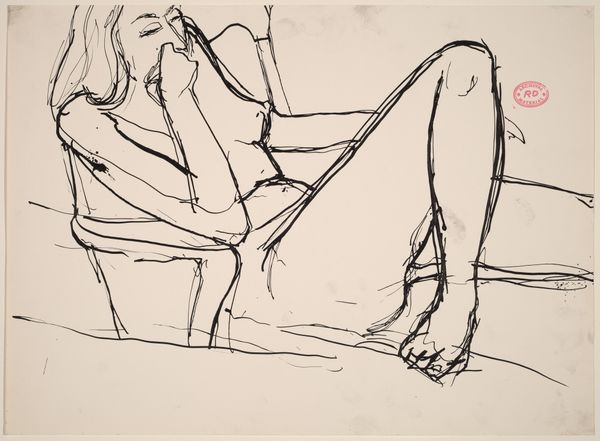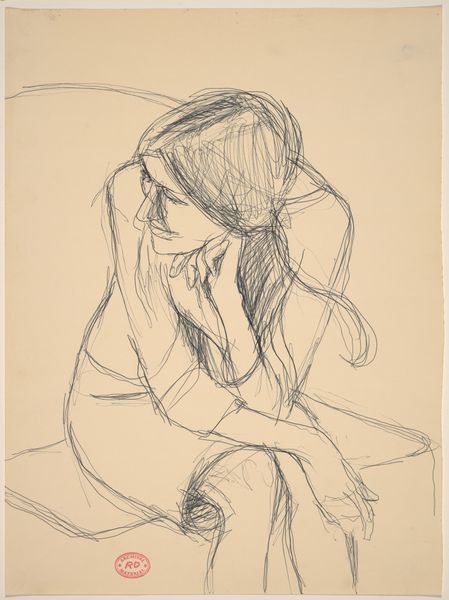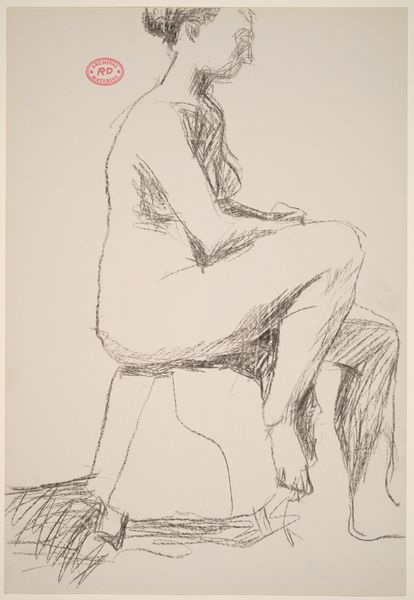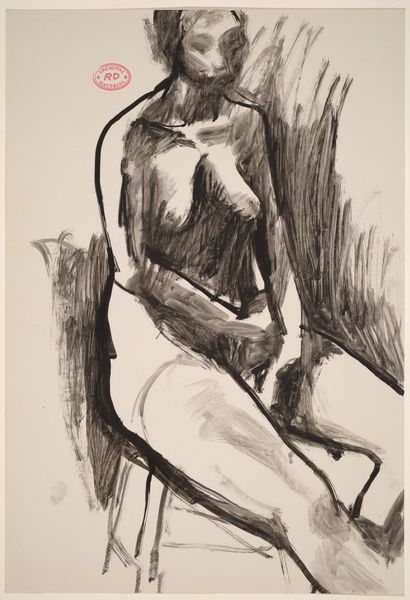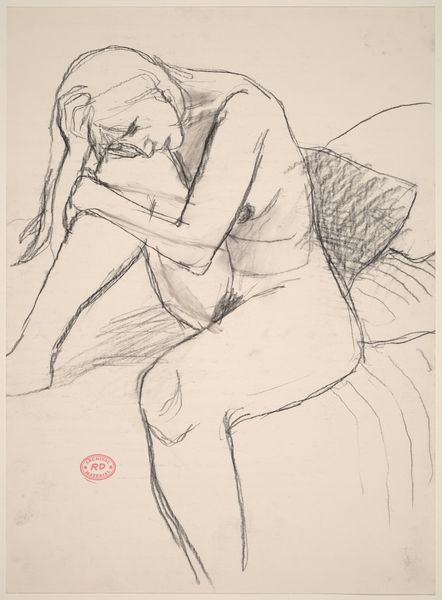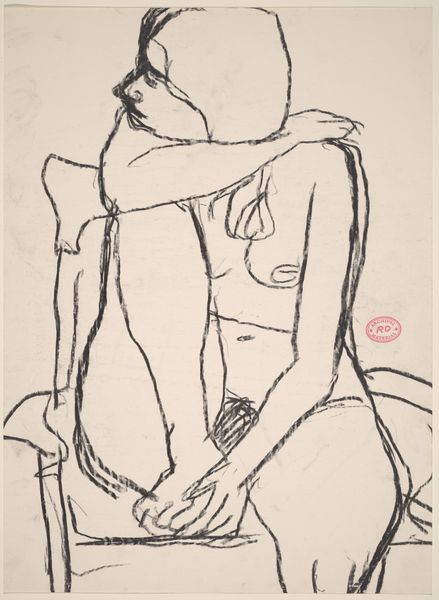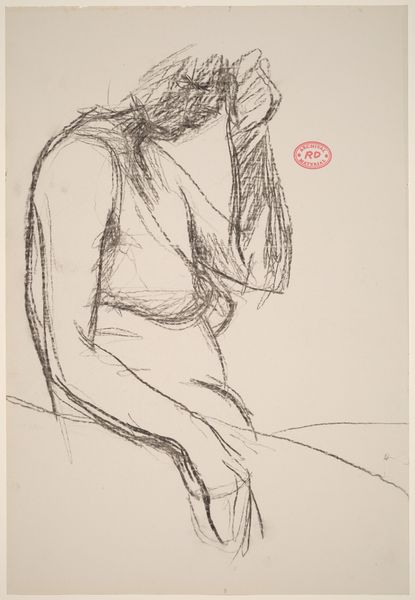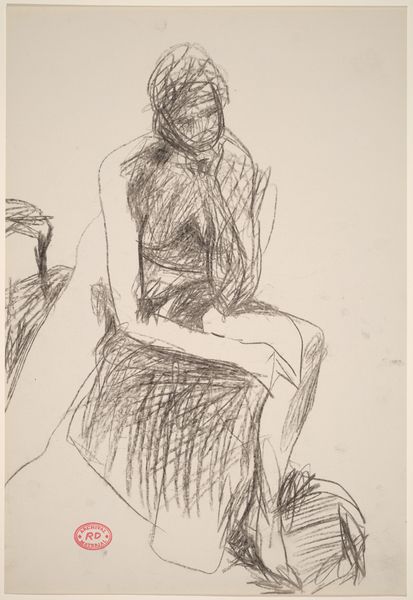![Untitled [female nude with bowed head] by Richard Diebenkorn](/_next/image?url=https%3A%2F%2Fd2w8kbdekdi1gv.cloudfront.net%2FeyJidWNrZXQiOiAiYXJ0ZXJhLWltYWdlcy1idWNrZXQiLCAia2V5IjogImFydHdvcmtzL2YyZWU5MWQxLTNjOWYtNDU2NC05ODIyLTc0YjExNDMyMDA0NS9mMmVlOTFkMS0zYzlmLTQ1NjQtOTgyMi03NGIxMTQzMjAwNDVfZnVsbC5qcGciLCAiZWRpdHMiOiB7InJlc2l6ZSI6IHsid2lkdGgiOiAxOTIwLCAiaGVpZ2h0IjogMTkyMCwgImZpdCI6ICJpbnNpZGUifX19&w=3840&q=75)
drawing, pencil
#
drawing
#
figuration
#
bay-area-figurative-movement
#
pencil
#
abstraction
#
nude
Dimensions: overall: 43.3 x 31.3 cm (17 1/16 x 12 5/16 in.)
Copyright: National Gallery of Art: CC0 1.0
Editor: We’re looking at Richard Diebenkorn’s "Untitled [female nude with bowed head]," made with pencil sometime between 1955 and 1967. The figure seems introspective, almost melancholic, don't you think? How do you interpret this work? Curator: The bowed head immediately draws my attention to themes of vulnerability and perhaps internalized oppression. The absence of distinct facial features encourages us to consider the universality of these experiences, particularly for women navigating societal expectations and constraints during the mid-20th century. How does the line work itself contribute to that feeling? Editor: It does look quick, almost unfinished, like a thought barely captured. Curator: Exactly. This rawness is important. Diebenkorn’s style, straddling figuration and abstraction, reflects a period of intense renegotiation of identity. What does it mean to represent a woman, stripped bare – literally and figuratively – in a way that moves beyond objectification? Considering the feminist art movement that was beginning to gain momentum, can we see echoes of those emerging conversations here, about female subjectivity and the male gaze? Editor: So you’re saying the sketchiness is part of the point, a rejection of polished ideals? Curator: Precisely. The tentativeness resists easy answers, inviting viewers to engage critically with notions of beauty and representation. The posture, shielding her face, almost suggests resistance. A rejection of performing for the male gaze, or a retreat from the public sphere? Editor: I never thought of it that way. I just saw sadness, but now I see more complexity, almost defiance in her withdrawal. Curator: And that's the power of art, isn't it? It's never just one thing; it's a reflection of ongoing cultural dialogues. Considering the historical context allows us to unearth so many possible meanings, particularly in a work that is so deceptively simple. Editor: It’s definitely given me a lot to think about regarding Diebenkorn’s perspectives on the mid-century experience of women. Thanks!
Comments
No comments
Be the first to comment and join the conversation on the ultimate creative platform.
